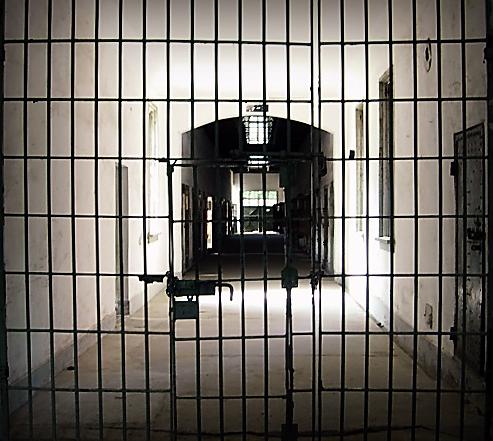Earlier this week, President Barack Obama signed multiple executive orders banning solitary confinement for juvenile inmates in federal prisons and limiting its use on other federal prisoners. The measures, Obama wrote in an op-ed Monday, are aimed at curbing the practice of isolating inmates for up to 23 hours a day in small, restrictive cells. These cells often have no windows, and these prisoners – at least 10,000 a year, according to a Yale report cited by the president – are often held in such conditions for weeks or months at a time. Some inmates end up nearly forgotten in “The Box,” neglected by bureaucratic systems that strain administrators’ abilities to pay attention to everyone at once; in other facilities, prisoners are sent to solitary detention blocks haphazardly or as retribution for low-level infractions.
A 2003 Human Rights Watch report says up to two-thirds of all prisoners in solitary confinement suffer from “serious mental illness.” Once there, they are more likely to continue to be isolated for longer periods of time than inmates in better mental health. Sensory deprivation, social isolation and inhumane treatment are not treatment strategies; in fact, studies indicate the practices exacerbates mental illnesses in people who already have them and causes them in people who don’t.
Moreover, solitary confinement – especially for juveniles – runs counter to the purpose of prisons. The criminal justice system exists to repair harms against society. A great majority of people who are at one point held in prisons will return to the outside world. Their sentences are intended both to deter future crimes and adjust their behavior. That’s why prisoners have access to job programs, religious groups, classes, study materials, visitors and one another. There’s a reason the prison administration system is called the Department of Corrections: they are intended first and foremost to correct and rehabilitate, not to harm and isolate.
Solitary confinement does the opposite, according to a 2007 study by researchers at the University of Washington. After release, prisoners who had been held in isolation units committed felonies at a higher rate than prisoners in regular populations, even after accounting for mental illness, criminal history and other factors relevant to the risk of reoffending. The damaging effect of solitary confinement becomes more pronounced the longer inmates are subjected to it. In one study, a researcher made visits to a California isolation unit multiple times over a 20-year period. The results of his interviews with prisoners are startling: more than 70 percent of isolated prisoners reported depression; 78 percent said they felt emotionally flat; and 63 percent of long-term residents in solitary confinement warned of “an impending breakdown,” a condition which only 4 percent of general population prisoners reported. The alarming effects of isolation continue upon release: solitary confinement has been linked with anti-social behavior, increased risk of violence, difficulty holding a job, stress, depression and a much greater risk of self-harm and suicide among former inmates.
In sum, solitary confinement is a practice whose use is beneficial only in a small range of cases, and only then for short periods of time. Anything else is an affront to decency, a serious assault on the basic humanity of inmates and not just ineffective but actively detrimental to the goals of society and rehabilitation. It is also torture, according to the United Nations.
One of the most common arguments supporting solitary confinement asserts criminals, especially those who are so hard to control that guards relegate them to isolation units, deserve what they get. We disagree. Criminal offenders deserve what they are sentenced to in a court of law, nothing more. The vast majority of people sent to solitary confinement are nonviolent offenders. And even the ones who aren’t don’t deserve cruel punishment. They don’t deserve massively increased risk of suicide. They don’t deserve to be broken. The whole point of civil society is to preserve social good. Being intentionally, vindictively cruel doesn’t get us there; irreparably harming other Americans through institutionalized violence does the opposite.
We applaud the president’s moves to limit the use of such a deplorable practice in federal prisons. However, that is not enough. Currently in Massachusetts, state inmates can be held in isolation for a decade. Juveniles can be placed in solitary confinement. People who have already been diagnosed with mental illnesses can be isolated for 30 days at a time. This must change. We call for the Massachusetts General Court to follow Obama’s lead and pass two bills, H. 3451 and S. 1255, that would collectively end the use of solitary confinement on those under 21, severely limit its use on other inmates including those with mental illness, set up a commission to study the practice and require reviews every 15 days of prisoners sent to isolation units. While these laws may not go far enough, they aren’t a bad start. Failing to pass them would be a victory for cruelty, torture and inhumanity.
Photo courtesy Kim Daram, Creative Commons









